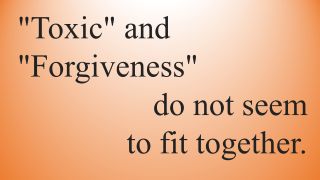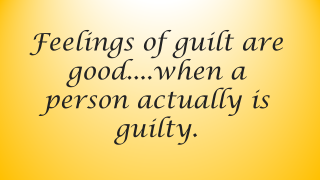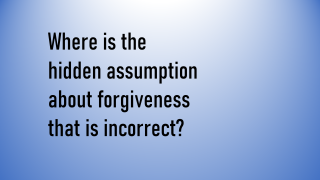Forgiveness
14 Popular Criticisms of Forgiveness
Criticizing forgiveness has become popular. Which are serious concerns?
Posted May 10, 2023 Reviewed by Davia Sills
The old-time comedian, Rodney Dangerfield, used to quip that he never gets any respect. Forgiveness in popular media seems to be the new Mr. Dangerfield, based on the number of criticisms swelling against this ancient moral virtue. Let us take a look at 14 of those popular objections against forgiveness and see which of them hold up to scrutiny.
First, what does it mean to forgive? Forgiveness is a moral virtue that includes trying to be good to those who are not good to you. As you forgive, you are motivated to do good, try to formulate good thoughts about the person, await the emergence of softer emotions, and behave in a way that is kind, respectful, and, on its highest level, even loving in the sense of helping the other to do better. To forgive is never to excuse the unjust behavior or to necessarily reconcile if the other continues to be abusive, and one never abandons a quest for justice because forgiving and being fair are a team. One without the other can lead to overly harsh or overly weak responses to the other.
With that in mind, let us examine 14 popular criticisms against forgiving those who hurt you.
1. Forgiveness is a fad, creating pressure on people to forgive.
Response: Forgiveness is a choice that is up to the forgiver. Pressure to forgive is not the problem of forgiveness itself but of people who misunderstand it as a free-will choice.
2. Forgiveness is caving into the other’s demands.
Response: When forgiving and justice exist side-by-side, the forgiver certainly is not caving in.
3. Forgiveness is a herd mentality. People only forgive because everyone else is forgiving.
Response: While others’ forgiving can be a positive encouragement for you, your forgiving still is your own free-will decision, as in point 1 above.

4. To forgive is toxic. It hurts the forgivers because they are now acquiescing to the unfair person’s demands, and the existing relationship, which is toxic, hurts the forgiver.
Response: When you forgive, you need not reconcile if the other continues to abuse you. Forgiveness as a free-will choice is not toxic. It can set you free of resentment even if you don’t reconcile.
5. Forgiveness is a sign of internal moral weakness because you do not stand up for your rights.
Response: As stated in the second point, as you forgive, you should ask for justice. This combination of justice and forgiveness is a sign of strength, not weakness.
6. When traumatized by others, avoid forgiveness because it is a sign of disrespect toward the self.
Response: When traumatized, it is your choice to forgive or not. If you forgive well, you offer yourself the opportunity for deep psychological healing. This is hardly disrespecting yourself.
7. There is a “dark side” to forgiveness in that you let others take advantage of you.
Response: The answer is similar to your points 2 and 5. You should ask for fairness when you forgive. This is not dark but instead sheds light onto the problem so that you can solve that problem well.
8. Forgiving others lowers your self-esteem as you focus more on those who did wrong than on healing yourself.
Response: There is a paradox of forgiving in that as you reach out to others with forgiveness, offering a second chance as well as kindness and love, it is you, the giver, who heals. Scientific studies have demonstrated the validity of this paradox.

9. When you proclaim your forgiveness, it only serves to make the one who offended you feel guilty.
Response: Yes, your proclamation of forgiving may make the other feel guilty, and this is a very good thing if the other is guilty of injustice. The feeling of guilt may aid the person in repenting and therefore changing unjust behavior.
10. Much self-help advice suggests that forgiving is a quick fix, accomplished so quickly as to be a superficial and misguided way of healing from trauma.
Response: Research consistently shows that to forgive a person for a very deep injustice that has resulted in the effects of trauma takes patience, struggle, and time. The problem here is in the advice of quickness and not something inherent in forgiveness itself.
11. It is impossible even to understand or define forgiveness because there are so many different definitions of it in the published literature.
Response: This problem is not inherent in forgiveness itself but instead is a problem with those who write about forgiveness without deeply understanding what it is. The definition presented above is consistent with ancient views and current philosophical views of forgiveness.
12. Forgiving is a sign of disrespecting the offending person because it does not give that person a chance to repent and change their behavior.
Response: You can forgive and then support the person in repenting and changing behavior. There is no rule of human behavior that states that a person cannot repent once you initiate forgiveness toward that person.
13. The more people ask you to forgive, the more fuzzy you get about what is right and wrong. For example, if parents keep asking Sally to forgive her brother Sam for continually hitting her, eventually Sally may come to think that it is perfectly all right for Sam to keep hitting.
Response: True forgiveness helps people see the injustice more clearly, not more opaquely. As people break through denial, examine what happened, and allow for a period of anger, they begin to label the other’s behavior as “wrong” or “unfair.”
14. Forgiveness will lead to the opening of every jail cell door and letting out potentially dangerous people.
Response: This argument confuses forgiveness and legal pardon. A person can forgive and see that it is important that a person, who remains a danger to society, stays in a correctional institution.

So, then, we examined 14 popular objections to forgiving, and none withstood the response. A take-home message may be this: The next time you read about or hear a scathing criticism against forgiving, ask yourself this question: Where is the hidden assumption about forgiveness that is incorrect? If you find it, then dismiss the criticism. If you are unable to dismiss the criticism (because there is no incorrect hidden assumption), let me know. I am still looking for that definitive criticism of forgiveness that invalidates it. To date, I have not found it.




